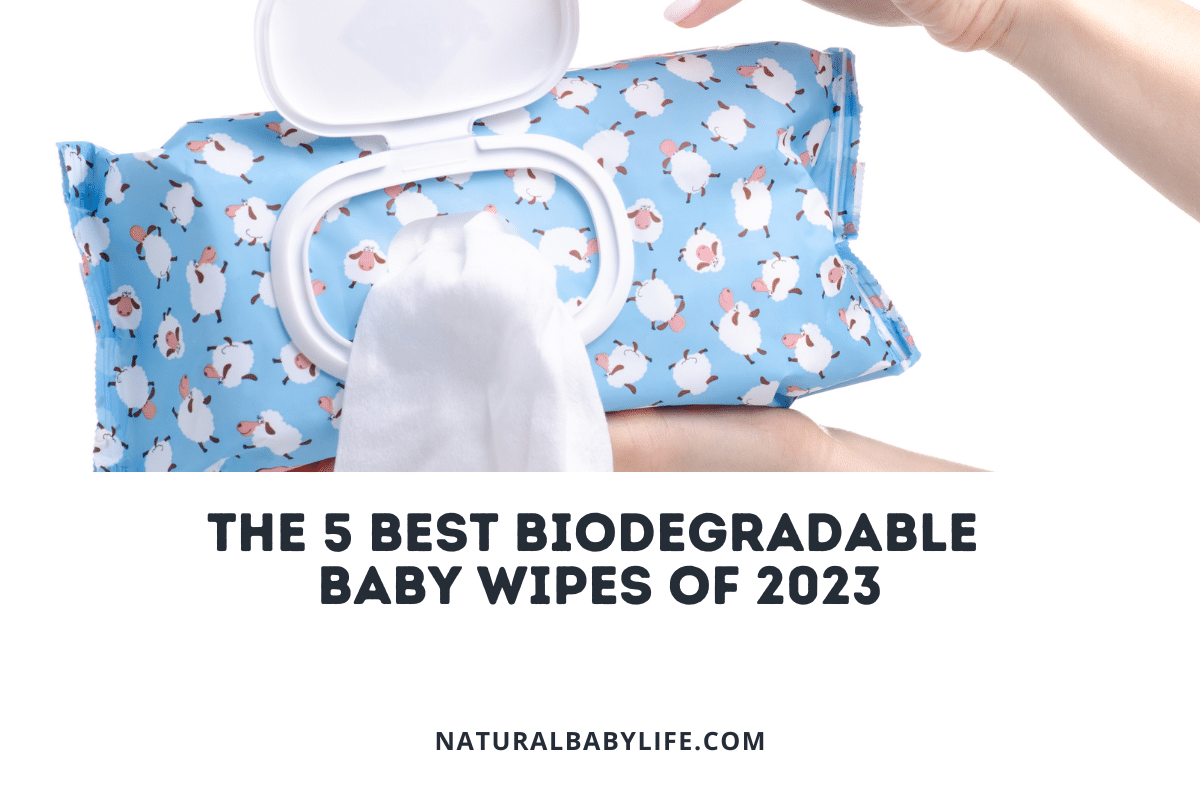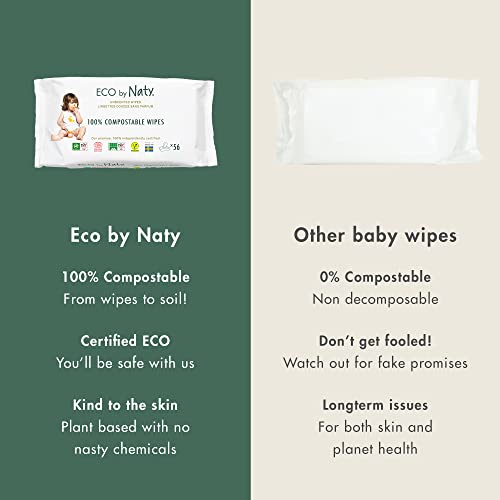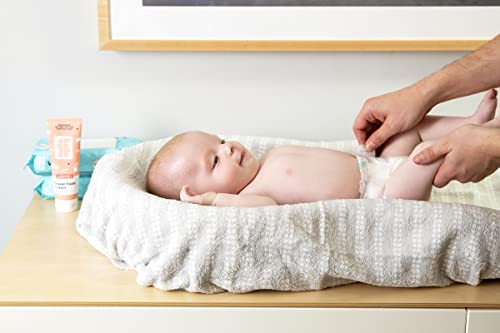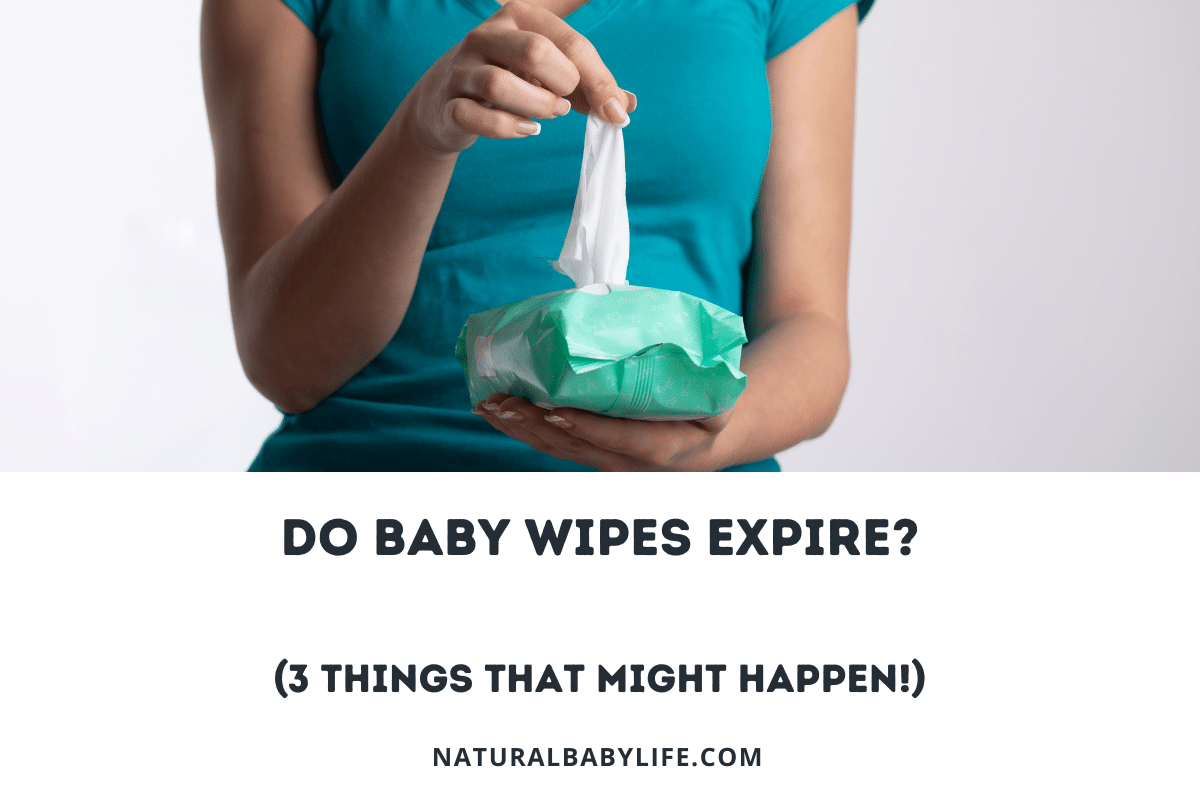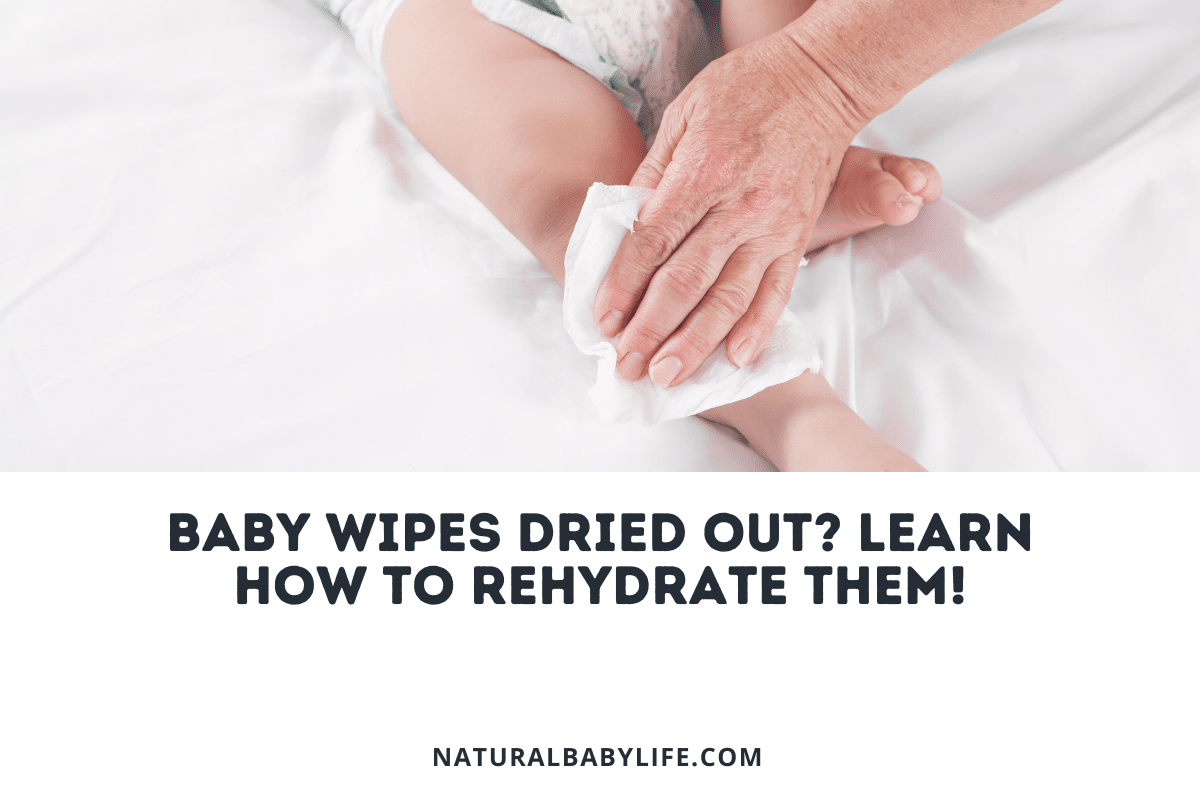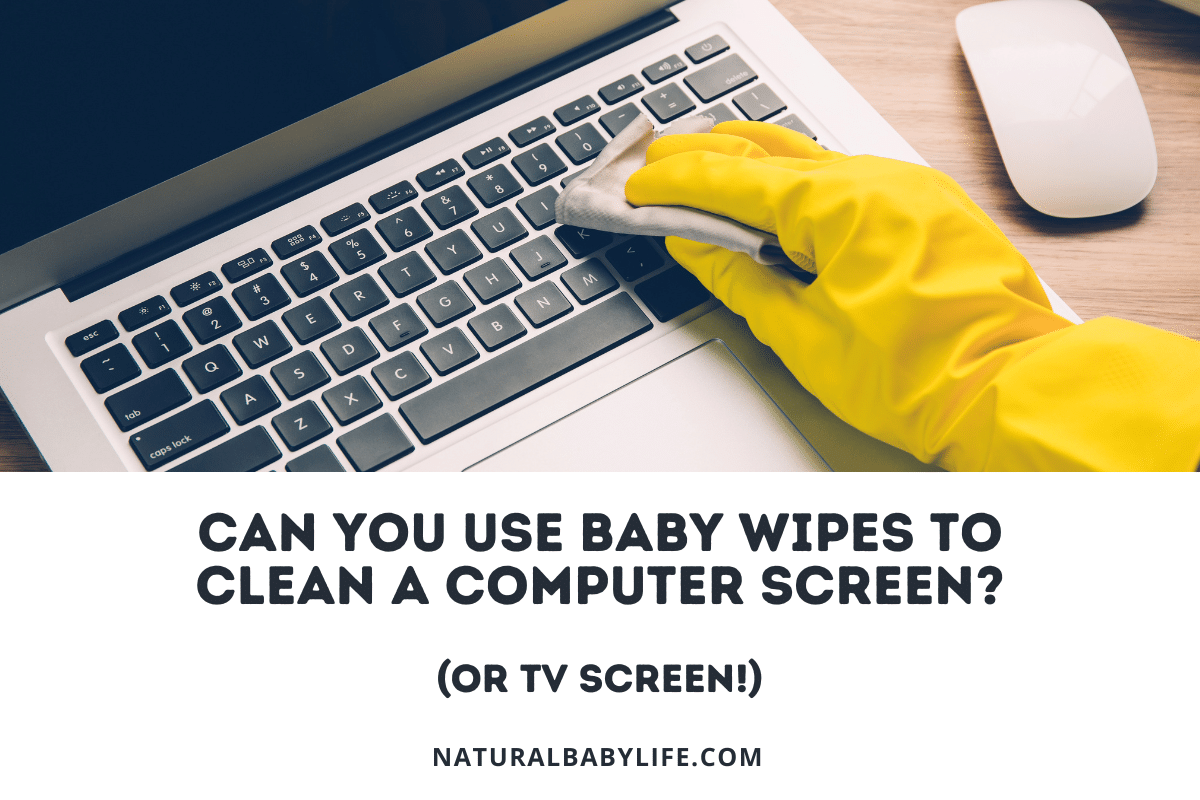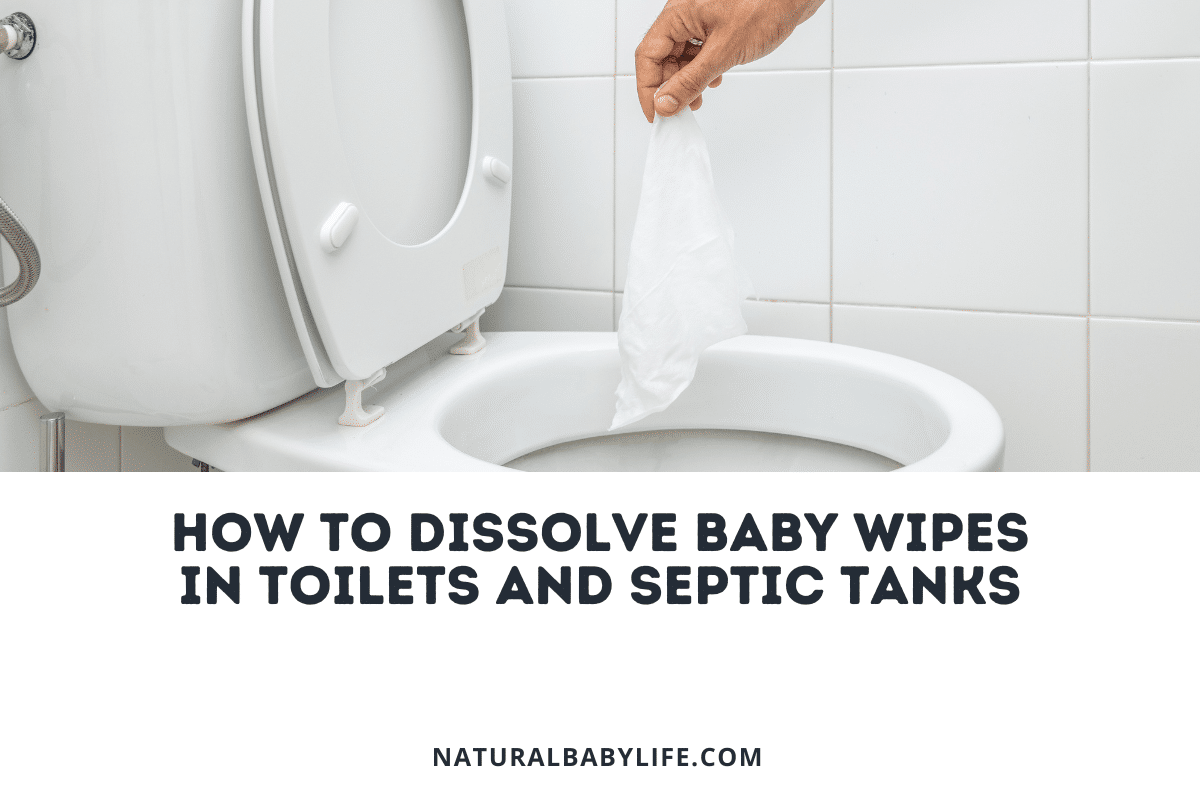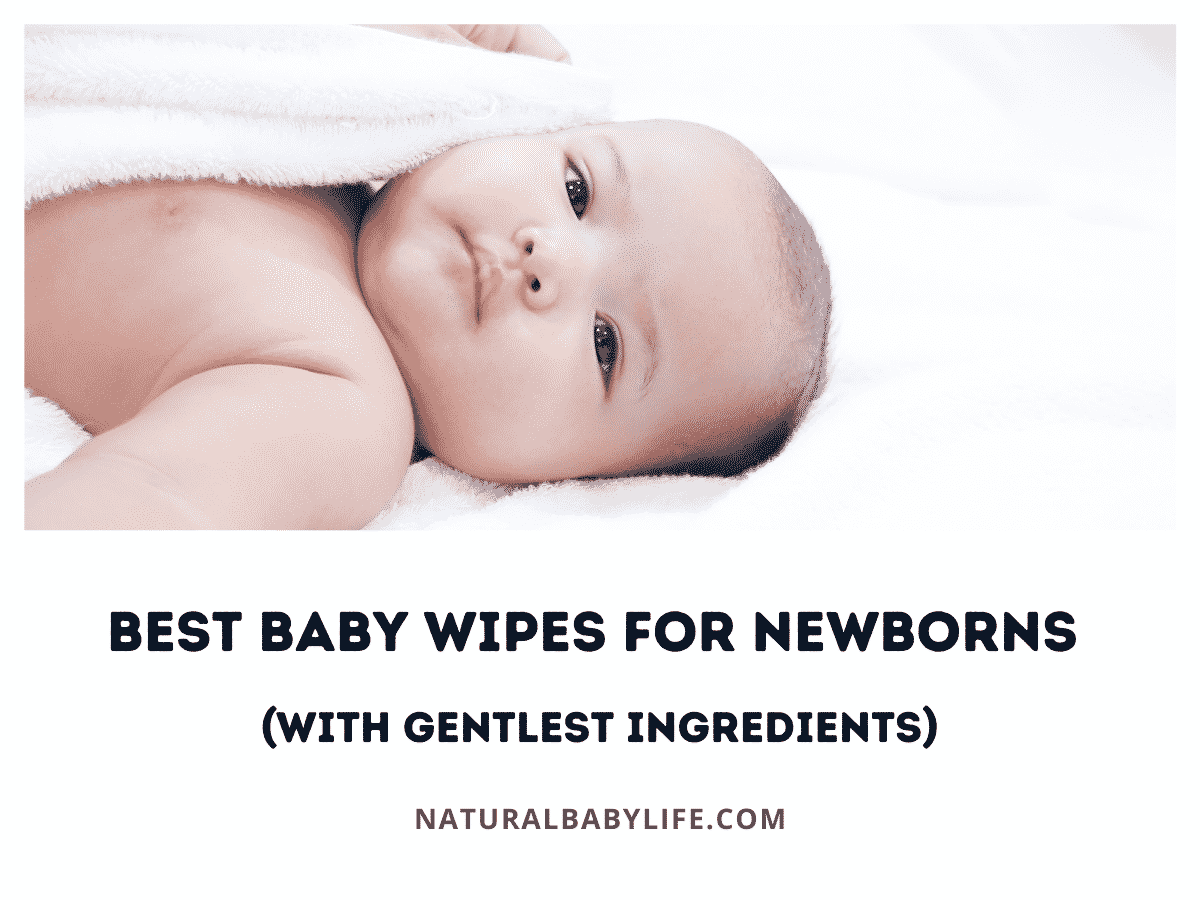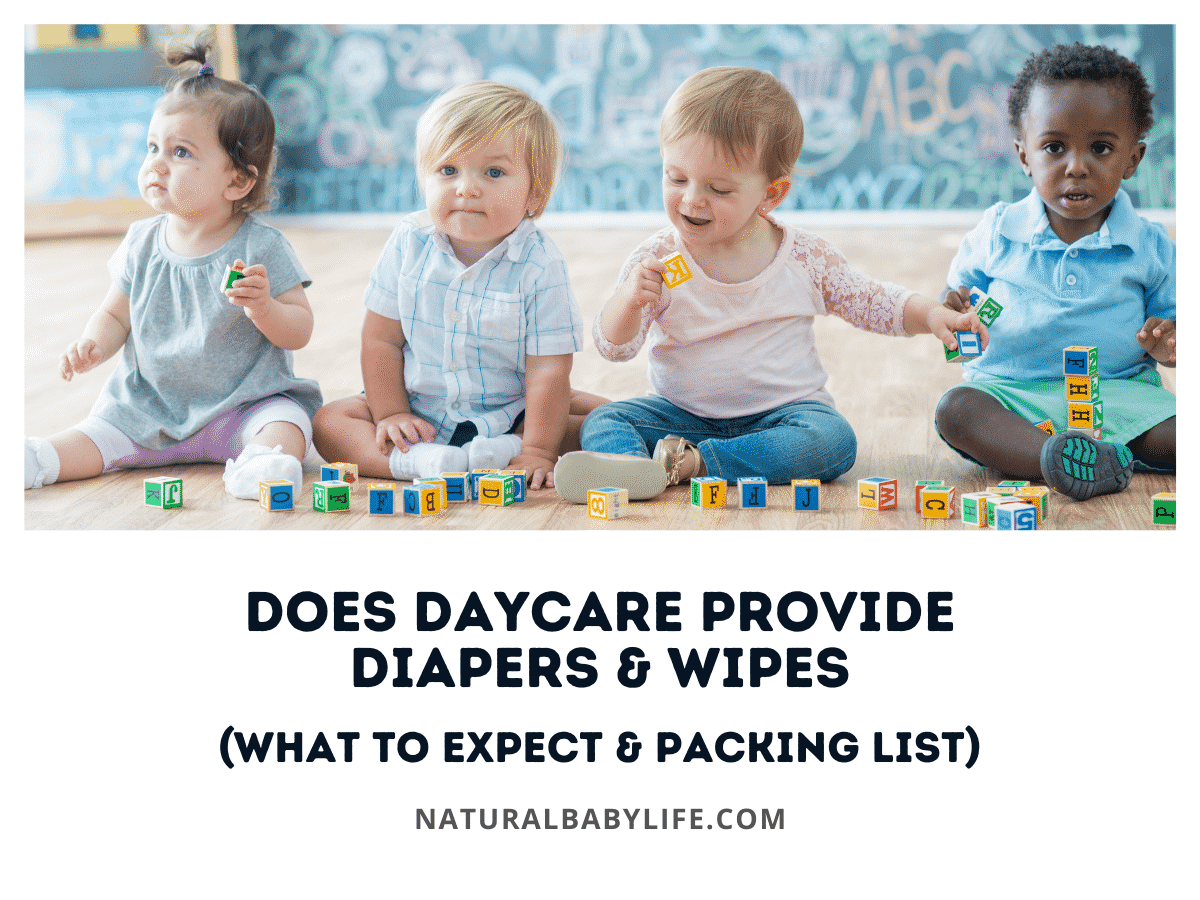As a father of three, I’ve seen my fair share of baby wipes. In fact, we’ve tried and tested more than a dozen natural brands alone over the past year with our son and we love them because they avoid harsh chemicals in their wipe solutions to provide a safer, gentler product. One thing I didn’t realize, however, is that a natural baby wipe doesn’t necessarily mean it’s a biodegradable baby wipe! Since money definitely IS a consideration for me, I decided to figure out which of our favorite brands also happen to be biodegradable and won’t break the bank.
The first selection is my family’s favorite brand of natural biodegradable baby wipes, followed by other top contenders in no particular order. We love these brands because they focus on natural ingredients, avoid harsh chemicals, and generally try to make a product that is friendly for the environment. Also, they all work great for cleaning up baby messes!
While I wouldn’t necessarily rank most of these brands above the others, I hope it gives you a good starting place to find your own favorite brand of biodegradable baby wipes that help you get the job done at diaper change time all while letting you sleep a little easier at night that your wipes won’t be clogging up a landfill!
Table of Contents
Here are the best biodegradable baby wipes for 2023
I’ll be rating the wipes based on my personal experience, features, fragrance, and price. I will also note any ingredients with EWG scores higher than (2) for safety in the list.
#1 The Honest Company
The Honest Company hasn’t been around for very long, only since 2012. Founded by Jessica Alba, they try to offer an entire line of personal care, cleaning, and beauty products that are safe while still being effective at what they are supposed to do. Throughout their history, they have avoided using any of the 1,300 chemicals banned in Europe for use in baby products despite the FDA only banning a few of them in the US. They have also lobbied in favor of stricter testing for chemical safety in consumer products.
We love using these wipes in our house and we’ve gone through many packs. The wipes are VERY durable and they have a nice texture to them that really keeps hands from slipping and landing where they shouldn’t! They also have a very pleasant smell despite being ‘fragrance-free’. Overall, they are our favorite natural wipes option right now because of the quality and price!
Here are some important details:
- About $.063 per wipe for 576 wipes – the cheapest on this list as of the time of this writing!
- The wipe solution is over 99% water
- Natural plant extracts help moisturize the skin
- Wipes are made from plant-based material
- Biodegradable and compostable
- Larger than most other wipes
The ingredients:
Water (Aqua/Eau), Glycerin, Chamomilla Recutita (Matricaria) Flower Extract, Cucumis Sativus (Cucumber) Fruit Extract, Glycyrrhiza Glabra (Licorice) Root Extract, Punica Granatum Juice Extract, Decyl Glucoside, Citric Acid, Caprylyl Glycol, Trisodium Ethylenediamine Disuccinate, Ethylhexylglycerin, Sodium Benzoate (3)
#2 Joonya Baby
Another newcomer, Joonya is an Australian brand that has only been around since 2013. It was founded by parents bent on curing their son’s nasty diaper rash with a safer, more natural alternative to the baby wipes available in their stores. Their ingredient list even manages to avoid some of the milder chemicals that other brands can’t seem to eliminate like sodium benzoate and potassium sorbate. They have a relatively unique model in that they offer trial packs and membership discounts for customers to save money over time. They also plant a tree for every order made!
We have really enjoyed the Joonya baby wipes and we love the ingredient list as well as the large, premium feel of the textured wipes themselves. They have great packaging with a reliable one-wipe-at-a-time stack and a very mild, almost non-existent ‘fragrance-free’ fragrance.
Important details about these wipes:
- About $0.10 per wipe on Amazon. They offer the wipes at around $.04 per wipe through their bulk membership program
- Extremely safe ingredient list
- Very large wipe sizes
- Plant-based cloth material
- Unique ‘Silver dihydrogen citrate’ preservative and antimicrobial that replaces chemical alternatives
- Moisturizing ingredients
- Biodegradable
Complete ingredients list:
Purified Water, Jojoba Oil, Aloe Barbadensis Leaf Juice Powder, Chamomilla Recutita Flower Extract, Silver Dihydrogen Citrate, Citric Acid, Decyl Glucoside, Sodium Citrate
#3 Eco by Naty
Eco by Naty is a Swedish baby brand that’s been around since 1994. The founder of the company was a corporate lawyer that decided to become an ecological entrepreneur after learning about the negative impact of traditional disposable diapers on the environment. They are firm about not taking shortcuts to produce a better diaper – their high-quality bio-based materials often cost five times more than their competitors and they only go after the toughest certifications.
I’ve used many packs of these wipes and I love how durable they are and for a ‘fragrance-free’ wipe they smell very fresh to my nose. It’s easy for wipes without a fragrance to smell a little off, so this is a definite plus compared to some other brands!
Here are the important facts:
- About $.06 per wipe for 12 packs of 56 (672 wipes)
- The wipe solution is 98.5% water with all-natural ingredients
- The wipe cloth itself is made from 100% renewable plant-based materials.
- Biodegradable and compostable
- Free of chlorine, parabens, perfumes and all of the other nasty chemicals that are often found in baby wipes.
- Dermatologically tested to be hypoallergenic
And here are the ingredients:
Aqua, Gluconolactone, Potassium Sorbate (3), Propanediol, Sodium Benzoate (3), Caprylyl/Capryl Glucoside, Maltodextrin, Aloe Barbadensis Leaf Juice, Chamomilla Recutita Flower Extract, Calcium Gluconate, Citric Acid
#4 Hello Bello
Hello Bello is a pretty new company arriving in the baby scene. Founded by Dax Shepard and Kristen Bell, their goal is to provide safe and effective baby products are affordable for any parents that want to take better care of their babies. They also want to make sure that their products are safe for the planet, including renewable ingredients and recyclable containers, helping to keep it safe for generations to come.
We’ve used plenty of Hello Bello wipes and our favorite part is that they are VERY tough and have a noticeable texture which makes them easier to use and more effective. They have a very neutral scent, smelling very lightly of aloe.
Here are some of the details:
- About $0.03 per wipe for 6 packs of 180 (1,080 wipes)
- 99%+ pure water solution
- pH-balanced and hypoallergenic
- Biodegradable but NOT compostable
- Plant-based, medical-grade cloth material
Ingredients include:
Chamomilla Recutita (Matricaria) flower extract, decyl glucoside, Ethylhexyl glycerin, gluconolactone, hydroxy acetophenone, polyaminopropyl biguanide, sodium benzoate (3), water
Thanks to a dedicated reader, I also have the ingredients of the diaper itself straight from a Hello Bello customer care representative! When asked, here was their reply:
Our premium, biodegradable cloth is viscose fiber made from regenerated cellulose. It’s structurally similar to cotton but can be derived from a variety of plants like bamboo, wood pulp, and sugar cane.
#5 Attitude
The Attitude brand has been around since 2005 and it’s a Canadian company based out of Montreal. They offer an entire line of eco-friendly products for the home including things like laundry detergent, hair care, and pet grooming. Their goal is to offer products with natural ingredients that perform as well, if not better, than the more commonly found synthetic options without costing an arm and a leg.
We’ve used a couple of packs of these wipes and love that they have the coveted EWG verified badge. There are no hesitations about safety when using this product. While they worked well, I do remember that I wasn’t very fond of the smell. Like most natural wipes, they are fragrance-free, but something in the ingredients list didn’t set right with my nose! Compared to the others, they are also a bit pricy – maybe because they aren’t big in the USA yet?
Here is some more information:
- About $0.11 per wipe for 1 pack of 72 wipes
- EWG Verified – their best score available for rating the safety of ingredients
- The cloth is made from 100% cellulose
- Biodegradable and compostable
- Cruelty-free and vegan
- Hypoallergenic
- Recyclable packaging
And for the ingredients:
Aqua, sodium citrate, sodium benzoate, potassium sorbate, glycerin, sodium cocoamphoacetate, chamomilla recutita (matricaria) flower extract, citric acid
What makes baby wipes biodegradable in the first place?
When it comes to the biodegradability of baby wipes, it depends on materials used in the cloth itself. Typically if the wipe is made from synthetic materials, like plastic, it won’t biodegrade. If it’s made from natural, organic materials, it will biodegrade. Even among the biodegradable materials though, there is the question of how long it will take! Most modern landfills are sealed to keep out oxygen which can make an impact on the speed that even biodegradable materials will break down.
Here are the most common baby wipe cloth materials and a rundown on whether or not they will biodegrade:
- Cotton – This is a pretty good choice because cotton is a plant and will break down completely over time, but it will go faster in an oxygen-rich environment.
- Wood pulp – Another good choice. Wipes made with wood pulp can break down pretty quickly, in as little as 12 weeks.
- Bamboo – Baby wipes made from bamboo are some of the fastest biodegrades out there. Some can break down in as little as 21 days!
- Viscose rayon– Rayon actually comes from trees and it’s considered a semi-synthetic cellulosic fabric. Under ideal conditions, it can biodegrade faster than cotton (about six weeks), but in a landfill setting, it can take decades.
- Polyester – If you’ve worn clothing in the past few decades, you already know about polyester. It’s a plastic material and will not biodegrade over time.
- Polypropylene – Another plastic material, this one won’t biodegrade either!
What are the standards for biodegradability?
If you are checking labels on your baby wipes or other products, you’ll likely see a ‘*’ next to the biodegradability feature. If you move over to the explanation, you’ll probably find that the wipe meets the requirements for two different industry standards for biodegradability, OECD 311 and ASTM D5338.
The OECD 311 standard is used to see how organic materials will biodegrade in anaerobic conditions (without oxygen). This is important because most water treatment facilities will use an anaerobic digester to ‘digest’ the sludge that comes through the sewer lines as a last resort before dumping it back out into the environment somewhere. The test runs for 60 days to see how quickly the material breaks down.
The ASTM D5338 standard is another test that looks at the aerobic biodegradation (with oxygen) of materials when mixed with the usual bacteria and fungus found in those environments. Essentially, it’s a big composting test. The test runs for 90 days to see how quickly the tested material will break down.
Why should you care whether or not your baby wipes are biodegradable?
Biodegradable baby wipes are a big deal because the alternative, plastic-based wipes that will never truly break down naturally, are contributing to the horrific plastic pollution problem that our world is currently facing. Considering the fact that babies will use thousands of wipes from birth until they are potty trained, this is a big deal.
How big is the problem? Some data suggests that there will be more plastic in our oceans than fish by weight in the year 2050.
I also just went into depth about how hard it is to dissolve baby wipes that have clogged your toilet or septic tank – you don’t want to worry about this expense!
Incredible.
Related information on baby wipes
Hopefully, this guide has helped you choose a biodegradable baby wipe that works for your family’s safety and budget. If you want more information on how to choose a safe baby wipe, check out some of the most common chemicals to avoid on your baby wipe ingredients list. If you’ve ever wondered whether or not baby wipes ever expire, are antibacterial, or safe to chew on, I’ve also got you covered!

